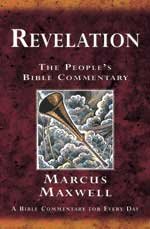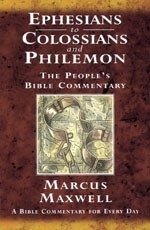Life
in lockdown has caused me to reflect about space. Confined mostly to
our homes, and outside them still restricted in travel and work, we
have, I think, become aware of the bounds of our world in a new and
pressing way. Life has come to have very clearly defined borders—the
home, the trip to work or shop, an hour or so’s walk or bike ride.
This has now been partially relaxed (perhaps not wisely, given our
country’s lamentable death and infection rates) but spacial
restrictions still apply, in some ways more obtrusively. We can go
out, chat at a safe distance, but not visit those who mean the most
to us.
These
restrictions encourage us to find new ways to use space, for
reflection, hobby, home improvement, entertainment, deepening
relationships and finding tolerance and understanding.
They
also has their downside, in frustration, a sense of imprisonment,
worry about finances and survival itself. Mental health issues have
multiplied. And tragically restricted movement has brought a new
freedom to abusers of adults and children, locked away from scrutiny,
and has vastly diminished their victims’ chances of escape.
It
has raised issues of space for the church, as well, particularly the
Church of England. Congregations can no longer meet for worship and
fellowship, and in the case of the CofE, even clergy have until
recently been strictly forbidden to enter their churches to pray.
They could go in to check the building for insurance purposes etc.,
but definitely not to pray, nor to record or live stream acts of
worship. Let us not ask cynical questions about priorities here....
At
present, this too is being relaxed, as the bishops back-pedal and
recast their dubiously legal instructions as “guidance” and now
allow (sorry, advise) limited access for the purposes that the
government legislation allowed all along.
We
(mostly) all agree that the church is the people, not the place, and
that the presence of God is what sanctifies a place. Those who have
decried the retreat of the CofE “into the kitchen” (a reference
to Justin Welby's broadcast worship from Lambeth Palace’s kitchen,
rather than its chapel) are castigated for denigrating the domestic,
and “gendering” the debate.
But
this seems to miss the main point at issue. Spaces matter. Our bodies
delimit us in space, and in many ways govern the way we can act in
the world. We share spaces with others, in home and workplaces.
Spaces define our communities, and the local areas in which we are
comfortable, and those in which we are uneasy, as strangers or lost.
We recognise safe p laces and danger zones.
The
incarnation involves the Word of God coming into the space of his
body, the space of Nazareth, of Galilee and so on. Into the danger
zone of the world.
How
we use spaces therefore matters. Whether we make them places of
safety or danger, welcome or exclusion and above all whether we
recognise them as the spaces in which we live out our discipleship.
To be a follower of Christ is not about what goes on in our heads but
also in the space we occupy, and the actions that we perform there.
Our
homes are of course, spaces where discipleship is carried out. Prayer
and worship are offered there, service is offered to members of our
household (where they exist) and to neighbours, even in these
spatially constrained times.
Yet
the way we use wider spaces matters too. For a very long time, church
buildings have occupied a place in the public space of our
communities. They have been a statement that the people of Christ are
active in the midst of our shared space. We belong, and have much to
offer to the other inhabitants of our local space.
Certainly
the danger of infection and disease transmission means that gathering
for worship in our historic places of worship is a very bad idea. But
to withdraw entirely, to forbid the broadcast of prayer and worship
from the space that has long lain at the heart of the local community
seems a backward step, a retreat into privacy, that “privatised
religion” of which we have long been warned.
So
I for one welcome the news that we can now be seen and heard (where
bells may safely be chimed) to still be in business in the local
space in which we are called to discipleship.
Of
course, the church continues to be involved as disciples of Jesus in
the public space. Church based food banks (tragically more necessary
than ever) continue to operate. Church members, both individually and
in an organised way, deliver food packages and offer support and
contact to the frail or lonely. This is hugely important. And yet,
for the church’s spiritual life to be seen also as part of that
public, communal space surely matters more than ever.
Our
local church bell chimes each evening at 7.00 p.m. with the message
that prayer is being offered, there at the heart of the community,
and that prayer undergirds the efforts of many local Christians to
live out their faith in love and support for their neighbours.


No comments:
Post a Comment